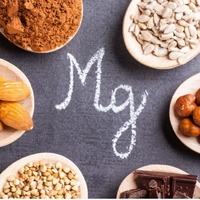
Since the outbreak of the pandemic caused by the severe acute respiratory syndrome coronavirus 2 (SARS-CoV-2) virus, a flurry of research has been conducted into the relationship between vitamin D deficiency, vitamin D supplementation and risk of infection, severity of illness and mortality, resulting in controversy and debate.
Research is trying to address two main questions:
- Is vitamin D deficiency associated with rates of SARS-CoV-2 infection or with severity and outcomes of COVID-19, the disease caused by SARS-CoV-2 infection?
- Is vitamin D supplementation beneficial in preventing SARS-CoV-2 infection or in favourably altering the severity and course of COVID-19?
What has become clear is that the relationship between vitamin D status and/or supplementation and infection risk and disease outcomes is complex, and many factors need to be considered when deciding whether to supplement with vitamin D for COVID-19 prevention or treatment. Vitamin D deficiency is widespread worldwide, and the prevention of COVID-19 through vitamin D supplementation is being considered as a possible cost-effective and easy to implement therapeutic strategy (1).
Biological plausibility
Although the exact mechanism by which vitamin D could prevent SARS-CoV-2 infection or improve COVID-19 prognosis is unclear, there is clear biological plausibility of the relationship between vitamin D and COVID-19. Vitamin D and its metabolites may be involved both in the viral replication process and in the binding of the virus to the host (2).
- Vitamin D is known to exert immunomodulatory effects in innate and adaptive immune responses, plays a significant role in various bacterial and viral infections and could act as an anti-inflammatory agent (3,4,5,6,7,8,9).
- Vitamin D receptors are expressed in many immune cells, including monocytes, macrophages, dendritic cells, neutrophils, and lymphocytes (10,11,12). Vitamin D increases the antimicrobial activity of monocytes and macrophages (13) and has anti-inflammatory effects due to the induction of T regulatory cells and reduction in the T helper-17 immune response and pro-inflammatory cytokine production (12).
- Vitamin D regulates the renin-angiotensin system and expression of angiotensin-converting enzyme 2 (ACE2) and its receptor that mediates SARS-CoV-2 infection (6).
- Vitamin D has the potential to affect SARS-CoV-2 gene expression and alleviate infection upon binding to the vitamin D response element (6,14).
- Vitamin D deficiency is a documented risk factor for the development of exaggerated and persistent inflammation, which is a precursor to acute respiratory distress syndrome (ARDS) (15).
The evidence
Vitamin D deficiency
Strong observational evidence indicates that vitamin D deficiency is a leading candidate in association with COVID-19 susceptibility, severity, progression and mortality, with a higher prevalence of vitamin D deficiency in more severe COVID-19 cases (16,17,18,19,20,21,22,23). Vitamin D deficiency is also associated with comorbidities that are known to affect COVID-19 severity and outcome, such as diabetes, cardiovascular disease, hypertension, obesity, and age (24). However, further research is needed to better understand the relationship between vitamin D and COVID-19.
A recent study found that patients with vitamin D deficiency (< 50 nmol/L) were 14 times more likely to have a severe or critical case of COVID than those with > 100 nmol/L. Mortality among patients with sufficient vitamin D levels was 2.3%, in contrast to 25.6% in the vitamin D deficient group (25).
Vitamin D supplementation
There is no strong evidence through randomised controlled trials (RCTs) on the therapeutic benefits of vitamin D supplementation in COVID-19 outcomes. The beneficial use of vitamin D supplements in COVID-19 has been reported in some non-randomised observational cohorts (26). Observational studies have been mostly preliminary, with much reporting being retrospective, descriptive, or only associative (1). Information in such studies should be interpreted with caution. Systematic reviews and meta-analyses on the clinical trials to date conclude that there is insufficient good-quality evidence to determine whether vitamin D is an effective or safe treatment for adults with COVID-19 (27).
A recent systematic review and meta-analysis of RCTs found that COVID-19 patients treated with vitamin D are more likely to demonstrate lower rates of ICU admission, mortality events and RT-PCR positivity relative to patients receiving no vitamin D, standard care or placebo (18). However, no statistical significance was achieved for individual outcomes of ICU and deaths. There was a statistically significant decrease in the rates of RT-PCR positivity in COVID-19 patients supplemented with vitamin D. More RCTs and completion of ongoing trials are needed to precisely establish the association between vitamin D supplementation and COVID-19 (18).
Below is a summary of the main clinical trial results:
- An RCT recommended using 5,000 IU daily vitamin D3, even for a short period, as adjuvant therapy for COVID-19 patients with suboptimal vitamin D status (< 50 nmol/L). Results indicate a decrease in time to recovery for cough and gustatory sensory loss among mild to moderate COVID-19 patients with suboptimal vitamin D status after 2 weeks of supplementation. However, almost half of the randomised patients also received vitamin C supplements (28).
- A single dose of 200,000 IU vitamin D3 in moderate to severely ill hospitalised patients did not significantly reduce the length of hospital stay, hospital discharge, ICU admission and rates of mechanical ventilation and mortality compared to placebo (29).
- Daily oral administration of 10,000 IU vitamin D3 in mild COVID-19 patients for 14 days resulted in significantly increased vitamin D levels post-treatment and fewer symptoms on the seventh and fourteenth day of follow-up. The vitamin D treatment group also had lower rates of seropositivity and RT-PCR positivity on the seventh and fourteenth days, respectively (30).
- Similarly, a 3-week intervention of 60,000 IU of vitamin D3 (oral nano-liquid droplets) daily for 7 days in mildly symptomatic or symptomatic COVID-19 patients resulted in a significant increase in the proportion of SARS-CoV-2 RNA negativity compared to placebo (31).
- A cohort of mild to moderate COVID-19 patients with suboptimal vitamin D status received 60,000 IU of oral vitamin D3 daily for 8-10 days and the outcomes were recorded until 21 days. Supplementation resulted in a significant increase in vitamin D levels with a lower rate of ICU and mortalities in the intervention arm as compared to the comparator group. Supplementation significantly improved inflammatory markers (32).
- A pilot RCT demonstrated that administration of high-dose calcifediol or cholecalciferol in conjunction with standard care reduced the need for ICU admission among hospitalised COVID-19 patients compared to unsupplemented patients. Baseline and post-treatment vitamin D levels were not reported (33).
Current literature reports that clinical trials of vitamin D supplementation are not entirely successful and show discordant results both in COVID-19 and in non-COVID-19 subjects (1). Vitamin D could be considered effective as a preventive measure and not as a therapy for acute respiratory infections using high doses in patients already suffering from severe infection (34).
Limitations
Results of meta-analyses investigating vitamin D in COVID prevention/treatment need to be treated with caution given the following limitations:
- Clinical trials investigating vitamin D supplementation in COVID have substantial clinical and methodological heterogeneity, mainly due to different supplementation strategies, formulations, vitamin D status of participants, ethnicity, seasonal variation and reported outcomes.
- Vitamin D absorption varies with factors such as age or excess weight, which could also affect the results of clinical trials (35).
- Small sample sizes and the criteria for sufficient and deficient vitamin D status varied across the trials.
- The variations in the COVID-19 severity, comorbidities proportions and standard care treatment strategies could have influenced the heterogeneity and the overall result.
- Differences in the study settings, timings, randomisation, blinding, and data collection strategies could have influenced the outcomes.
There is an urgent need to well-designed and adequately powered RCTs with an appropropriate randomisation procedure, comparability of study arms and preferably double-blinding (27,34).
Conclusion
Data on vitamin D and acute respiratory infections are promising and support recommendations for a sufficient vitamin D status during this pandemic; however, it is still unclear whether this also applies to COVID-19 (34). To date, the optimal vitamin D threshold for the prevention or treatment of COVID-19 and the doses that should be used to reach this threshold remains unknown (1).
There is still a scarcity of information through RCTs on the use of vitamin D supplementation in COVID-19 patients (18,36). High doses of vitamin D could provide a benefit for COVID-19 hospitalised patients (37); however, further studies are needed to establish the optimal dose of vitamin D as well as the type, form and delivery route of supplementation to achieve beneficial effects on the infection and course of COVID-19 (38).
For now, experts recommend incorporating regular supplementation for general health and well-being during the pandemic but have stopped short of suggesting the widespread use of vitamin D therapy in the acute setting of COVID-19 (39). There are currently more than 30 relevant clinical trials registered on clinicaltrials.gov which will hopefully shed more light on the situation (1).






